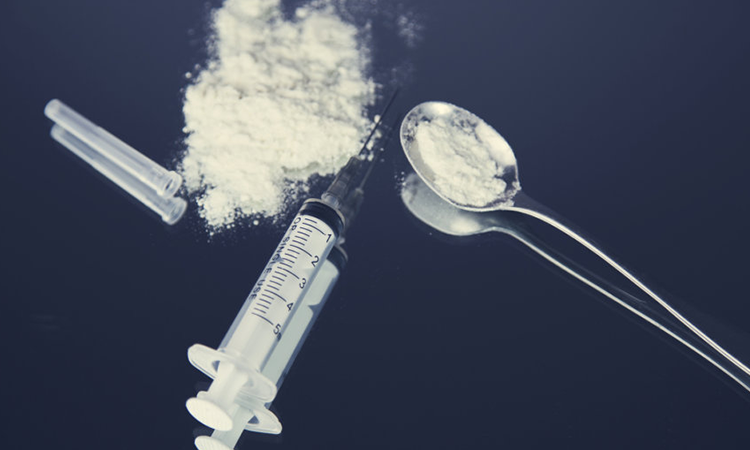
Long-Term Effects of Heroin – Heroin is a semi-synthetic opiate derived from morphine, an alkaloid found in the opium poppy. Heroin is commonly abused for it’s relaxing and euphoric effects.
According to the National Institute on Drug Abuse (NIDA), an estimated 23% of individuals who use heroin become dependent on it. It is the most abused and most fast-acting opiate, and heroin users are at significant risk of developing an addiction (25% of all users).
Long-Term Effects of Heroin Use
With repeated heroin use, tolerance to the drug increases, characterized by a corresponding decrease in physiological response. As a result, more heroin is needed to achieve the same effects that it once did. With regular use, addiction and dependence on heroin can rapidly develop.
Once a person becomes physiologically dependent, withdrawal reactions can occur when the person tries to cut back on use or quit the drug altogether. The longer and more intense the addiction, the stronger the withdrawal reaction will be. Withdrawal symptoms are particularly severe with heroin use, and often prompt users to relapse to relieve the pain and discomfort associated with withdrawal.
When symptoms occur, often within a few hours of the last use, they may include drug cravings, anxiety, agitation, nausea and vomiting, muscle pain, and restlessness. Unpleasant flu-like symptoms will peak within 2-3 days and last up to one week before waning.
In addition to tolerance, dependence, and withdrawal symptoms, the following is a list of the most significant long-term effects of heroin use:
Altered Brain Function
The long-term psychological effects of heroin can produce a variety of problems associated with brain functioning. Heroin can irreversibly alter the brain in ways that may be permanent, even after someone has discontinued use. The chronic effects of heroin on the brain indicate that the longer someone uses heroin, the less likely it is that their brain will ever fully recover and function like it did before they developed an addiction.
One of the long-term effects of heroin use on the brain includes the degeneration of white matter, which can result in the following:
- Poor behavior regulation
- Impulsivity
- Drowsiness
- Shallow or slow breathing
- Problems processing and reacting appropriately to stress
- Impaired decision-making abilities
- Difficulty processing complex information
- Impaired ability to acquire new information
Heart Disease
One of the most prevalent, and severe health problems linked to long-term heroin use is heart disease. Heroin use can result in both infections and defects in the areas that surround the heart. These conditions increase the likelihood of heart failure and other pulmonary complications. If a person has a family history of heart disease, he or she may be even more susceptive to heart problems.
Kidney Disease
Heroin use causes prolonged stress on the body and kidney disease. When an individual loses kidney function, he or she is at a higher risk of severe illness or death. Kidney disease is not among the most discussed consequences of heroin use but remains a significant risk for long-term heroin users. The kidneys function to eliminate waste (including drugs) from the body, and heroin abuse essentially causes them to work overtime.
HIV and Hepatitis
Those who inject heroin intravenously are exposed to a unique set of health risks. By sharing needles with others, users face a higher likelihood of contracting HIV, or hepatitis B or C. These are grave health concerns, as more than 130 million people in the world have hepatitis C. Research has shown that the high prevalence of HIV and hepatitis are a result of shared needle use.
Pneumonia and Tuberculosis
Heroin use impacts the body’s ability to fight against disease. When a weakened immune system is combined with the generally unhealthy lifestyle of a long-term heroin user, there is an increased risk for serious viral conditions that can be life-threatening, such as pneumonia, tuberculosis, and more.
Greater Chance of Overdose
The more a person abuses heroin, the more likely it is that they suffer an accidental overdose at some point. Unfortunately, drug overdose is a predictable and often disastrous outcome for heroin users. Heroin is an unregulated, illicit drug and there is always a chance of receiving a particularly potent dose, or one that is cut with something even more harmful (e.g., fentanyl) from a dealer looking to increase profits.
Other physical effects of heroin addiction on the body include:
- Severe, chronic constipation
- Swollen gums and damaged teeth
- A diminished libido
- Irregular menstrual cycles in women
- Impotence and sexual dysfunction in men
Getting Treatment
Heroin addiction is a chronic disease, and like many other diseases, it can be successfully treated. The most appropriate treatment methods for heroin addiction vary depending on the individual. Therefore, addiction specialists at Recovery in Tune develop evidence-based treatment plans that are focused on each patient’s specific needs and goals.
If you or someone you love is struggling with an addiction to heroin, waiting to seek out addiction treatment can have devastating physical and psychological consequences. Please call us today to get the help you need as soon as possible!
Related: Short-Term Effects of Heroin